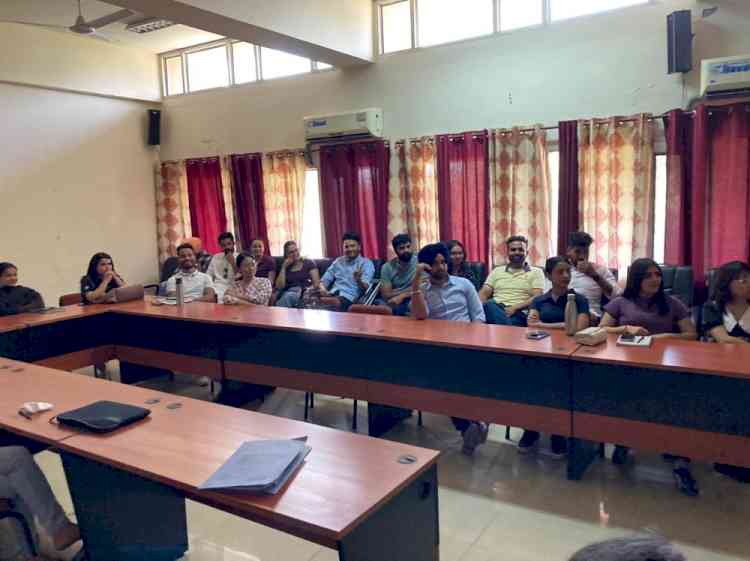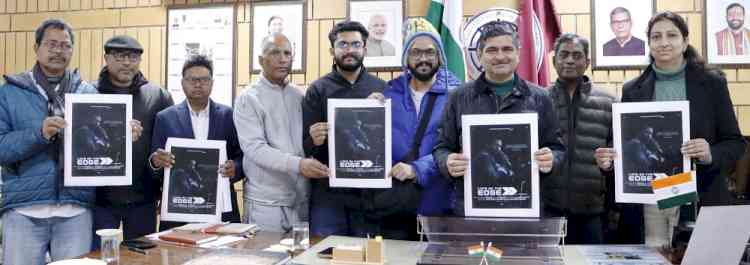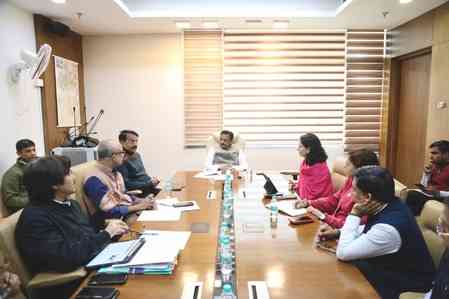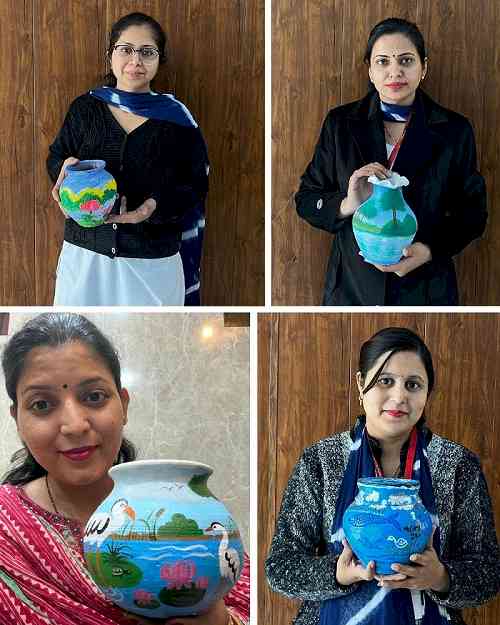Gender equality in India today
Gender equality in India today is the result of the seed sown by Babasaheb Ambedkar, stated Prof. Vibhuti Patel, Retired Professor, TISS and SNDT Women’s University Mumbai

Chandigarh, April 18, 2022: Gender equality in India today is the result of the seed sown by Babasaheb Ambedkar, stated Prof. Vibhuti Patel, Retired Professor, TISS and SNDT Women’s University Mumbai while speaking on the topic, ‘Babasaheb Ambedkar, the Constitution of India and Gender Equality’ at a Special lecture organized by the Department-cum-Centre for Women’s Studies and Development, Panjab University, Chandigarh to mark the occasion of Ambedkar Jayanti. Earlier, welcoming the guests and the speaker, Prof. Manvinder Kaur, Chairperson, Dept-cum-Centre for Women’s Studies stated that this was a day when we need to reconnect with our Constitutional values of equality, liberty and fraternity, for it is these values which will carry us forward to achieve a gender just and humanitarian world.
Emphasizing the significance attached by Dr. Ambedkar to gender equality, Prof. Vibhuti Patel remarked that, for him, the measure of progress of a community is the degree of progress which women have achieved. Prior to independence, supporting the Maternity Benefits Bill introduced in the Bombay Legislative Council in 1928, Dr. Ambedkar had stated, “It is in the interest of the nation that the mother ought to get a certain amount of rest during the pre-natal period”. Dr. Ambedkar in fact was the person who spoke for equal pay for equal work regardless of sex in 1938 in the Viceroy’s Executive Council.
The Constituent Assembly, she noted, had fifteen women, who contributed to the enshrining of the notion of gender equality in its various provisions. They have been hidden in history and it is time that their contributions are recognized. These were the women who have been raising issues of women’s rights and human rights at the national and international levels. For example, way back in 1948 when the Universal Declaration on Human Rights was being framed, Hansa Mehta and Laxmi Menon were present in the General Assembly and highlighted the exclusion of large sections of peoples from human rights. As a result a Committee was formed under the presidentship of Eleanor Roosevelt and Hansa Mehta was a part of the Committee.
Prof. Patel further highlighted that the thread of gender equality runs throughout the provisions of the Indian Constitution, be it fundamental rights or Directive Principles or even the notion of financial accountability. The roots of all the rights achieved by Indian women post independence lie in the Social Reform Movements during the freedom struggle. In face the participation of women in the freedom movement was in itself a revolutionary Act, for those were the days when women were supposed to be cloistered within the four walls of the household.
Tracing the history of women’s rights and gender equality in both pre-independence and post-independence period, Prof. Patel asserted that the promises of the pre-independence period were to be converted into practices and Dr. Ambedkar was the main inspiration behind this. However, the promise of equality leaves so many people behind because of socio-cultural constraints. Highlighting the various laws which have been enacted post-independence to convert the promises of the Constitution into practices, she pointed out the loopholes which hamper their implementation. For example the Transgender Persons (Protection of Rights) Act of 2019 , an extremely timely and needed law, however, provides only 2 years of imprisonment for rape of a transgender. She also highlighted that India has fallen behind in the global gender gap Index.
She further warned about the threat to the Constitutional values due to the re-emergence of customs such as child marriage and the increase in violence against women due to the pandemic. She poignantly quoted from a letter written by a child published in the Times of India of 1884 in which the child had stated, “The wicked practice of child marriage has destroyed the happiness of my life. It comes between me and things which I prize above all others, study and mental cultivation. Without the least fault of mine, I am doomed to seclusion…” Quoting a UNFPA Report she stated that sex selective abortion has increased in the years of the pandemic. “We’, she concluded, “should not be complacent, because the customs harming gender equality can reappear any time as is happening in Afghanistan. We need to be on our guard.”
The lecture was attended by about 60 persons from within the Panjab University as well as from Universities across the country.


 cityairnews
cityairnews 










